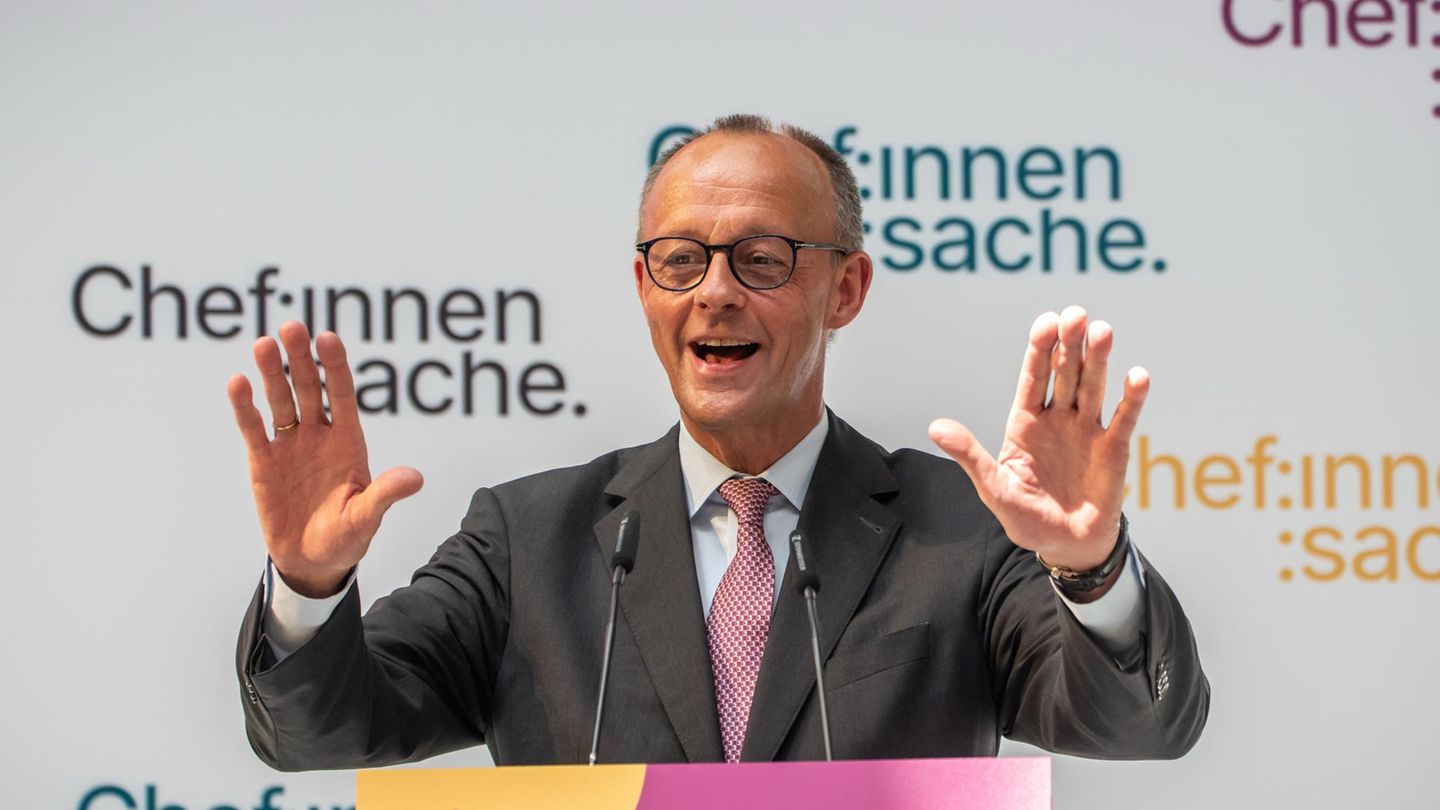Compensation has already been agreed for RWE for the phase-out of coal in the Rhineland region. Now there is a fundamental decision for the east as well. The signal: planning security.
The East German mining company Leag will receive billions in compensation for the planned gradual phase-out of coal by 2038. The EU Commission has given the green light in principle for compensation of up to 1.75 billion euros.
Economics and Climate Protection Minister Robert Habeck (Greens) spoke in Berlin of an important step, especially for the people of the region. This would ensure compensation for the social security of employees during the transition and for the costs of open-cast mining.
The climate-damaging coal-fired power generation in Germany was actually not supposed to be phased out until after 2038. In order for the state funds to flow, the competition authorities in Brussels must give the green light. The EU Commission has now confirmed the regulation in principle in a “preliminary” assessment of state aid law, the Ministry of Economic Affairs announced.
That’s what it’s all about
Specifically, it is about 1.2 billion euros in “fixed costs” for recultivation costs and social costs such as social agreements. This is intended to ensure a socially acceptable reduction in jobs. This will happen regardless of when Leag actually phases out coal-fired power generation. The rest of up to 550 million euros is tied to conditions, according to the ministry.
The possible compensation of up to 550 million euros relates to possible lost profits for Leag due to the phase-out – but this depends on whether the power plants would have been profitable beyond 2038.
Habeck spoke of a “sharp” bill, depending on future prices for electricity and CO2, for example. He feared that there would be less money. With regard to Brussels, the minister said that initial signals had not made him very confident.
In March 2021, the EU Commission launched an investigation into whether Germany’s compensation plan was compatible with EU competition rules. The provisional agreement now reached should provide a solid basis for Germany to dispel the doubts raised by the Commission in 2021, the authority said. Habeck said the technical implementation still needs time.
Leag invests in wind power and photovoltaics
As part of the phase-out of coal, the energy group Leag wants to invest heavily in the expansion of renewable energies and restructure the company. By 2030, photovoltaic and wind power plants in Lusatia are to achieve an output of 7 gigawatts. Power plants are to be operated with hydrogen. Leag boss Thorsten Kramer said the compensation was an essential building block for the continued successful transformation of the company into a “green powerhouse”.
Coal phase-out in the East agreed by 2038
For the Rhineland region, politicians and the energy company RWE have agreed to bring forward the coal phase-out by eight years to 2030. However, an earlier phase-out in the eastern German lignite mining regions is controversial. The coalition at federal level consisting of the SPD, the Greens and the FDP had agreed in their coalition agreement to “ideally” bring forward the coal phase-out from 2038 to 2030.
Habeck said some time ago that an early exit to 2030 in the East would have to be agreed by consensus. “This will not be decided par ordre du mufti, but it must be seen as a good plan in a broad alliance.”
In a paper from the ministry on Monday, with regard to the East German coal mining areas, it was emphasized that the legally agreed phase-out of coal-fired power generation by 2038 would remain in place. “The federal government will not make any political efforts to change this legal deadline,” Habeck confirmed.
Leag CEO Kramer said: “I assume that we will meet the years planned for Leag.” The power plants would be shut down if there were sufficient alternatives to ensure security of supply. “We don’t have a crystal ball,” said Kramer. Unlike electricity generation from brown coal, for example, wind and solar power cannot be controlled.
Habeck expects earlier exit
The Federal Ministry of Economics believes that a faster, market-driven phase-out of coal is also possible in the East – against the backdrop of a reform of the European emissions trading system. “By 2030, lignite-fired power generation will become increasingly uneconomical,” said Habeck – although this depends on many factors.
The ministry is referring to the ongoing expansion of renewable energies as well as the planned construction of new gas-fired power plants that are to be converted to hydrogen – and the legal possibility of bringing forward the coal phase-out to 2035. Habeck said he believes that a coal phase-out in the eastern German mining areas could happen earlier than 2038.
The minister announced on Monday that the federal government wants to expand the scope for state funding programs in the former coal regions. This is intended to accelerate structural change. Direct investments in company settlements are now also to be made possible.
Michael Vassiliadis, chairman of the energy union IGBCE, said: “The compensation payments for LEAG not only ensure that no one is left stranded as a result of the structural change, they also open up the opportunity for secure mining planning and new, good jobs in the transformation.” It is now up to the federal government, states and companies to turn these opportunities into real prospects.
The reactions in Saxony
“It is an important signal of security from Europe for the people in the region, for Leag and for a successful energy and climate transition. The signal shows that neither the EU nor the federal government nor the state will leave the people and companies alone in the upcoming transformation. We are ensuring security,” said Saxony’s Minister of Economic Affairs Martin Dulig (SPD). Now lignite-fired power generation in Lusatia could come to a controlled end by 2028 at the latest. Saxony has the security that agreements on renaturation will be financed and that the entire setting for the coal phase-out will work.
The Greens in the Saxon state parliament spoke of a “sensible compromise”. However, a coherent concept was needed for the payment of the remaining pension funds. “The money for the renaturation must also be secured in the event of internal restructuring or insolvency,” they said. The environmental network Green League accused the federal government of giving away billions in tax revenue to oligarchs.
Compensation for RWE already agreed
In December, the EU Commission approved a multi-billion euro compensation payment for the energy company RWE’s early exit from lignite mining and power generation in North Rhine-Westphalia. RWE will therefore receive a total of around 2.6 billion euros in staggered payments up to 2030.
The EU Commission in Brussels announced that the compensation payment does constitute state aid. However, it is necessary so that RWE can phase out its lignite-fired power plants. RWE wants to operate lignite-fired power plants until the end of March 2030, but does not rule out subsequent reserve operation at the federal government’s expense.
Source: Stern




